Religion: Midrash and Aggadah
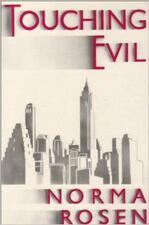
Norma Rosen
Born in Brooklyn in 1925 to secular and assimilated parents, Norma Rosen was an American-Jewish novelist, essayist, educator, editor, and professor. Rosen’s exploration of Jewish history and religion in her writings contributed to questions surrounding Jewish theology and Jewish feminism in the second half of the twentieth century.
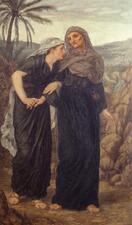
Ruth: Midrash and Aggadah
Midrash views Ruth very positively, describing her as beautiful, modest, and virtuous. The Rabbis also link Ruth with other revered women, such as Sarah and Rebekah, furthering her portrayal as an exemplary biblical woman. Despite her mother-in-law’s suspicion about the circumstances of her conversion, the midrash clarifies that Ruth converted based solely on her beliefs.
Sarah: Midrash and Aggadah

Sandy Sasso
Serah, daughter of Asher: Midrash and Aggadah
Sex
Shelomith 1: Midrash and Aggadah
Shiphrah: Midrash and Aggadah
Shua's daughter: Midrash and Aggadah
Shunammite: Midrash and Aggadah
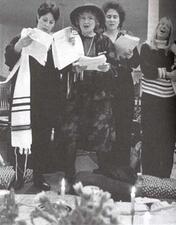
Spirituality in the United States
Jewish women’s spirituality developed historically within the confines of a patriarchal tradition. Over time, feminists have developed rituals and created spaces that honor the unique experiences of women.
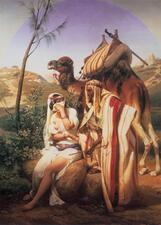
Tamar: Midrash and Aggadah
Tannaitic Literature, Inclusion of Women
Timna, concubine of Eliphaz: Midrash and Aggadah
Two Prostitutes as Mothers: Midrash and Aggadah
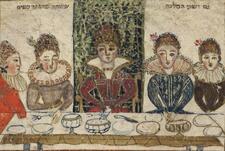
Vashti: Midrash and Aggadah
Widow of Zarephath: Midrash and Aggadah
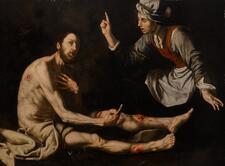
Wife of Job: Midrash and Aggadah
Job’s wife is the subject of a moral critique by the midrash for advising her husband to commit blasphemy. Different midrashim account for the possible outcomes and motives of her actions.
Wife of Korah: Midrash and Aggadah
Wife of Manoach; Samson's Mother: Midrash and Aggadah
Wife of On Ben Pelet: Midrash and Aggadah
The wife of On Son of Pelet is not mentioned in the Bible. However, the midrash credits her for saving her husband’s life. Her strong character allowed her to perform an “unbecoming” act to achieve a higher goal: rescuing her home and family.
Wise Woman of Abel-beth-maacah: Midrash and Aggadah
Wise Woman of Tekoa: Midrash and Aggadah
The A type of non-halakhic literary activitiy of the Rabbis for interpreting non-legal material according to special principles of interpretation (hermeneutical rules).midrash includes the wise woman from Tekoa among the twenty-three truly upright and righteous women who came out of Israel (Midrash Tadshe, Ozar ha-Midrashim [Eisenstein], 474).
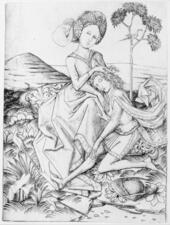
Women in Samson's Life: Midrash and Aggadah
The three women in Samson’s life were Gentiles: the woman from Timnah, the woman from Gaza, and Delilah. In the midrash, rabbis used Samson’s situation to denounce involvement with foreign women.
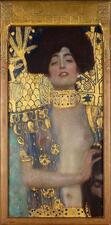
Women Warriors
In the Hebrew Bible and ancient Jewish literature, most warriors are men. However, a few women go to war or kill: Deborah, Jael, the unnamed woman of Thebez, and Judith.


